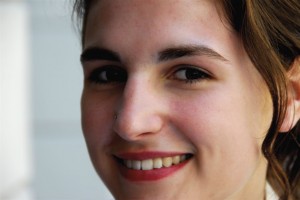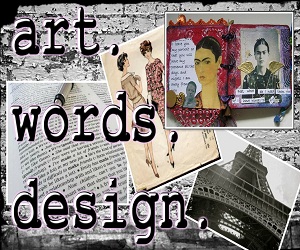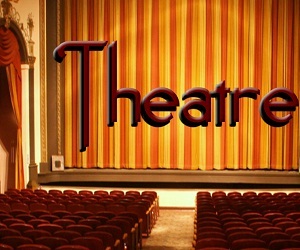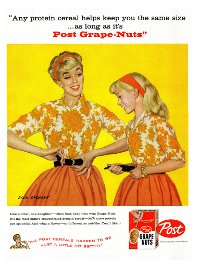On the last day of March Women’s History Month came to a close but today we have one final curtain call – with two amazing women from the world of opera: Brooke Bryant and Minou Arjomand.
Yes, March is officially over. But, like I said in the title, it’s over when *I* say it’s over … and I say it’s over when the Phat Ladies sing. (Yeah, yeah. I know. No one really uses “Phat” any more. But in this case it was really funny).
I’m fortunate that, in my business (the business of show) I don’t just interact, experience and enjoy a variety of talented people from a range of genres, but my virtual cup runneth over within each of those categories. Take opera for instance. I’ve mentioned often enough that I’ve been a dedicated devotee since my early childhood but I’m thrilled that now, in my role as editor and founder of The Happiest Medium I have been able to truly know so many talent people.
Earlier in this series I showcased Brett Umlauf who is one third of the amazing trio Charites. Today, soprano Brooke Bryant tells us more about this all female group; specifically what their challenges are and who inspires them.
Earlier Brett also mentioned a recent production of Morningside Opera’s Handel pastiche ATRA: Ossia, L’amore Ricordato which was cast “as a lesbian love triangle, the powerful castrato role being sung by a woman and *played* as a woman, i.e., not dressed in pants and a painted on moustache. The director, Minou Arjomand, will be telling you more about that process hopefully very soon.” Well, we’re grateful that “very soon” is now … Minou will be speaking with us from a director’s perspective about how she is reinventing the stereotypical “bland” women’s roles.
And now, for our grand finale – take it away, ladies!
Brooke Bryant (soprano) performs with Charites, a female trio specializing in early music. Brooke recently received a PhD in Historical Musicology from the CUNY Graduate Center and works in fund raising for iMentor, a nonprofit in NYC. Also a singer-songwriter, Brooke has performed with several bands at NYC hotspots like Sin-é, The Delancey, The Knitting Factory and Fontanas.
Talk to me about being a woman who does what you do- just overall.
I have always enjoyed surrounding myself by strong women. I count myself lucky to have several female mentors who serve as professional, artistic and personal role models. A proud graduate of a women’s college (Wellesley), I love engaging in creative projects with intelligent, powerful women. While gender isn’t a factor in how and why I build strong personal or professional relationships, I tend to gravitate towards making music with women. I can’t say why. Maybe it is because collaborating with people who are built to produce sound in the same way that I make sound opens up exciting new possibilities for using my voice as an expressive tool. Charites has provided an amazing opportunity for me to learn from two incredibly talented and inspiring women. Working intensely with Brett and Amber for over four years has challenged me to become a more daring musician and a more creative thinker.
What artists inspire you? Are you particularly inspired by female artists?
I’m inspired by women who carve out their own space for music-making, past and present. Hildegard von Bingen and Barbara Strozzi—female composers who specialized in writing for the female voice—are particular favorites. I also love listening to female bands from the 1990s, like Hole and Bikini Kill. I’m drawn to strong female characters in literature—whether conceived by male or female authors. Right now, I’m reading Bill Willingham’s Fables series (Snow White and Cinderella are amazing) and Sigrid Undset’s Kristin Lavransdatter.
How do these artists inspire Charites programming?
Charites concerts don’t just involve music; they also incorporate spoken poetry, gesture and choreography. We try to make our concerts theatrical experiences that bring music to life through a variety of media. To this end, we do not just take musical quality into account when selecting music. Instead, when designing concert programs, we think about how all of the pieces we are considering would fit together into a comprehensive whole. Character development, plot and emotional/thematic arc are just as important as musical beauty. We like to choose pieces that depict complex characters and offer layers of meaning. Charites frequently performs concerts that address gender roles and identities, either directly or indirectly. For example, one of our concert programs comprises music and poetry on the ephemeral nature of beauty written by women. We find this particularly interesting, because physical beauty has traditionally been the standard by which female worth has been judged. By staging this music with gesture, we call attention to the evanescence of our own bodies and voices.
Are there barriers you fought against in the past that are now becoming easier?
The biggest barrier that Charites faces is time. Our lives have changed a lot since we formed a group. When Charites first started, two of us were in graduate school and had very flexible schedules. After I finished my PhD, I began pursuing a full-time nonprofit career, which has limited the time I have available for music making. Amber is finishing her dissertation and raising a beautiful daughter. Brett is balancing more musical, film and artistic projects than I can count! We have to work hard to carve out time to rehearse. While it can be tough, having limited time actually encourages us to be incredibly conscious of how we are using our time together. Ultimately, we have had to become more deliberate and focused, which has helped us grow.
Final thoughts?
Charites will be performing a free concert on April 13th as part of Artek’s Midtown Concerts series. The concert will take place at 1:15pm at Immanuel Lutheran Church (E. 88th Street and Lexington). We will be performing music by 17th-century female composers, including Barbara Strozzi. We’re also putting the finishing touches on our first-ever recording, so stay tuned! About Charites: Charites (Brooke Bryant, Brett Umlauf and Amber Youell) is a female trio committed to bringing the art of early composers to life through bold, expressive performances. Charites draws on both historical and modern practices to create theatrical spectacles, combining virtuosic singing, movement and poetry to involve, delight and move listeners. Charites’ imaginative approach appeals to seasoned audiences, as well as those who are experiencing early music for the first time. The women of Charites have recorded and performed with esteemed musical ensembles in New York and around the world. They also enjoy collaborating with groundbreaking dance-theater group, Company XIV.
_________________
And now, our second encore, Minou Arjomand.  Minou Arjomand was raised in New York and earned her Master’s degree in Theatre from Columbia University, where she is currently working on a doctoral dissertation about theatrical trials in the 20th century and teaching undergraduate courses. She has worked as a dramaturge and director in New York and Berlin, and was a founding member of Morningside Opera. Recent production credits include direction of “The Map of Lost Things” by Darragh Martin at PS 122, direction and set design of a baroque pasticcio opera “Atra” at the Ailey Citigroup Theater, and dramaturgy for the Frankfurt Opera’s “Innenleben: Musiktheateraustellung” at the Bockenheimer Depot in Frankfurt-am-Main, Germany.
Minou Arjomand was raised in New York and earned her Master’s degree in Theatre from Columbia University, where she is currently working on a doctoral dissertation about theatrical trials in the 20th century and teaching undergraduate courses. She has worked as a dramaturge and director in New York and Berlin, and was a founding member of Morningside Opera. Recent production credits include direction of “The Map of Lost Things” by Darragh Martin at PS 122, direction and set design of a baroque pasticcio opera “Atra” at the Ailey Citigroup Theater, and dramaturgy for the Frankfurt Opera’s “Innenleben: Musiktheateraustellung” at the Bockenheimer Depot in Frankfurt-am-Main, Germany.
Talk to me about being a woman who does what you do- just overall.
I spend my time shuttling back and forth between two slightly different worlds: academia and opera. Within academia, I have always felt respect from my collegues as well as my students, and have also always had inspiring female mentors. Opera– at least the production side, and at the big houses– feels far more male-dominated than academia. In the US, I never felt any sort of outward sexism (working in Germany was a different matter, more below). But I am also slowly getting sick of the bland and stereotypical representations of women on stage. Often the productions that are hailed as edgy and avant-garde capitalize on the most clichéed images of women that can’t seem to get beyond burkas and head scarves on the one hand and graphic sexual violence on the other. It’s not simply offensive, it’s artistically shallow. Perhaps hiring more women to direct at major houses would help!
The time when it did make a difference to be a woman came directly after my graduation from college, when I ran off to Berlin to join the opera. A sizable number of Germans who are eager to identify themselves as leftist have this preoccupation about “political correctness” as far as an American is concern. The logic seems to be: the Americans are obsessed about being politically correct while they are actually socially reactionary hypocrites. Therefore, not being politically correct is a sign of sincerity and depth. The practical result of this stance was total impunity for any racist or sexist jokes during rehearsals in at least one of Berlin’s three major houses. More than that, when I complained that the 70-year old chorus director was continually groping not just me, but the other female intern, I was laughed at: “You’re so American. Don’t worry about that, he does it to everyone, he always has.” It made me realize that as important as it is to be critical of our own domestic policies, there is a lot about working in New York for which I feel grateful.
Being part of the artist collective Morningside Opera, I have had the chance to collaborate closely with stunning singers like Brett Umlauf, Brittany Palmer, Amber Youell, choreographer Patricia Weiss, and fellow director (and Columbia collegue) Anne Holt. (We have a few good men in there as well). For more information about our group, come to: morningsideopera.com










{ 0 comments… add one now }